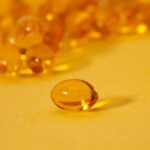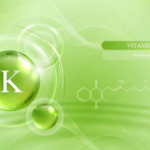Vitamin E is an essential nutrient that we often hear about but perhaps don’t fully understand. It acts as the body’s personal guard that protects cells from enemies. It plays a role in keeping various bodily functions under control.
This article explores vitamin E, benefits, risks, and how to get it through your diet.
What is vitamin E?
Vitamin E is a fat-soluble that dissolves and stores in the body’s fatty tissues and liver. It is an antioxidant and plays a role to protect cells from damage by free radicals, boosting the immune system. It keeps hair and skin healthy. It exists in various foods and dietary supplements.
Vitamin E is not just one compound. It is a family of eight chemically related molecules, divided into two main groups: tocopherols and tocotrienols. Each group has four members .i.e. alpha, delta, gamma, and beta. Each member has unique characteristics and roles in the body.
Tocopherols vs Tocotrienols
Tocopherols and Tocotrienols both are super heroes and each has their own special abilities. Both work together to support the immune system, combat oxidative stress, and maintain skin and hair healthy.
Of these, alpha-tocopherol stands out as the most active form in humans. While both are slightly different in their chemical structure and functions. Tocopherols are found in foods in large amounts. They are primarily recognized for their antioxidant properties.
On the other hand, tocotrienols are less common. But they also promise in supporting the immune system and potentially inhibiting the growth of cancer cells. They play an important role in protecting our cells from damage. However, more research is needed to understand tocotrienols and their benefits.
The Role of Vitamin E in the Body
A powerful antioxidant
Vitamin E has powerful antioxidant properties. It plays a role in protecting cells from damage by free radicals. Free radicals are harmful molecules that can damage cells and accelerate aging. It neutralizes these radicals and prevents chronic diseases and supports overall cellular health.
Supports Immune Function
A strong and healthy immune system is the first layer or line of defense against diseases and infections. Vitamin E improves the immune system response. It helps the body fight effectively against harmful bacteria and viruses.
Skin, hair, and anti-aging
Vitamin E should be your best friend if you want to prevent wrinkles. Its moisturizing properties keep your hair and skin healthy and hydrated. Due to its antioxidant properties, it combats signs of aging such as wrinkles and fine lines.
Eye Health and Vision Support
Vitamin E plays an important role in maintaining eye health. It protects eyes from oxidative damage. It may reduce the risk of cataracts and age-related macular degeneration (AMD).
Reduce inflammation
Chronic inflammation causes numerous diseases such as arthritis and heart disease. Vitamin E helps reduce inflammation while keeping your body in better balance.
What are the symptoms of a vitamin E deficiency?
Let’s talk about some such defects that if you start having problems. That means you have a deficiency of vitamin E. The deficiency symptoms are the following:
Ataxia:
Difficulties in walking, gait becomes fresh because your muscles have a complex interplay. Due to which you have problems in walking, this symptom is called ataxia.
Retinopathy:
Deficiency can affect eye sight and cause night blindness. And you may have a question, night blindness occurs, if you lack vitamin A. Then you are absolutely right, a similar problem occurs due to vitamin E deficiency. We can call this issue retinopathy.
Peripheral myopathy:
If you lack vitamin E, it can weaken the nervous system. You will face chronic pain in the body. Whether you work or not, you will feel tired, lazy, and weak.
Skeletal myopathy:
You will feel weakness in the muscles of arms and legs, which can progress to difficulty in movement. If you sit anywhere, it becomes difficult for you. When you try to get up, you feel dizzy, and weakness in your legs.
Immune System:
The last issue that can occur at any time is the deterioration of the immune system. It can weaken your immune system and may cause infections and illness frequently.
Rich food sources of vitamin E
Now that we know how amazing vitamin E is, where can we get it from? Don’t worry, you can find it from a variety of rich food sources, such as.
- Nuts (almonds, hazelnuts, peanuts)
- Seeds (sunflower seeds, pumpkin seeds)
- Green leafy vegetables (spinach, kale)
- Vegetable oils (sunflower oil, olive oil)
- Fruits (avocado, kiwi)
Plant-Based vs. Animal-Based Foods
Although most vitamin E comes from plant sources. Small amounts can be found in animal-based products such as eggs and fatty fish. However, plant-based foods are richer in this vitamin.
Daily Intake of Vitamin E
Vitamin E deficiency is uncommon in otherwise healthy individuals, as most people get enough from their diet. The daily intake is follows as based on age and more:
| Age | Generally | Pregnant | Breastfeeding |
| 0–6 months | 4 mg | – | – |
| 7–12 months | 5 mg | – | – |
| 1–3 years | 6 mg | – | – |
| 4–8 years | 7 mg | – | – |
| 9–13 years | 11 mg | – | – |
| 14+ years | 15 mg | 15 mg | 19 mg |
Toxicity of vitamin E
Vitamin E is a fat-soluble vitamin that the body requires in adequate small amounts. The body stores it for long periods of time. So taking in large amounts can be toxic and you may face some health issues. However more research is needed.
- Blood thinning
- Fatal bleeding
- Interfere with blood clotting
- Hemorrhagic stroke, caused by bleeding in the brain
- Death
How much vitamin E is too much?
The European Food Safety Authority (EFSA) has set ULs for vitamin E from all dietary sources as follows:
| Upper Limit (UL) per day | |
| 1–3 years | 100 mg |
| 4–6 years | 120 mg |
| 7–10 years | 160 mg |
| 11–14 years | 220 mg |
| 15–17 years | 260 mg |
| Adults | 300 mg |
| Pregnant | 300 mg |
| Breastfeeding | 300 mg |
Conclusion:
Finally, vitamin E is an essential nutrient that plays a role as an antioxidant. It benefits your skiing, heart, immune system, and more. Whether you get it from dietary sources in adequate amounts is good for overall health. Remember to eat a natural and healthy diet in balance. If you have some health conditions due to deficiency, you should consult with health care specialists.




Pingback: Megwel Tablets: Your Health Partner - The Nutrio